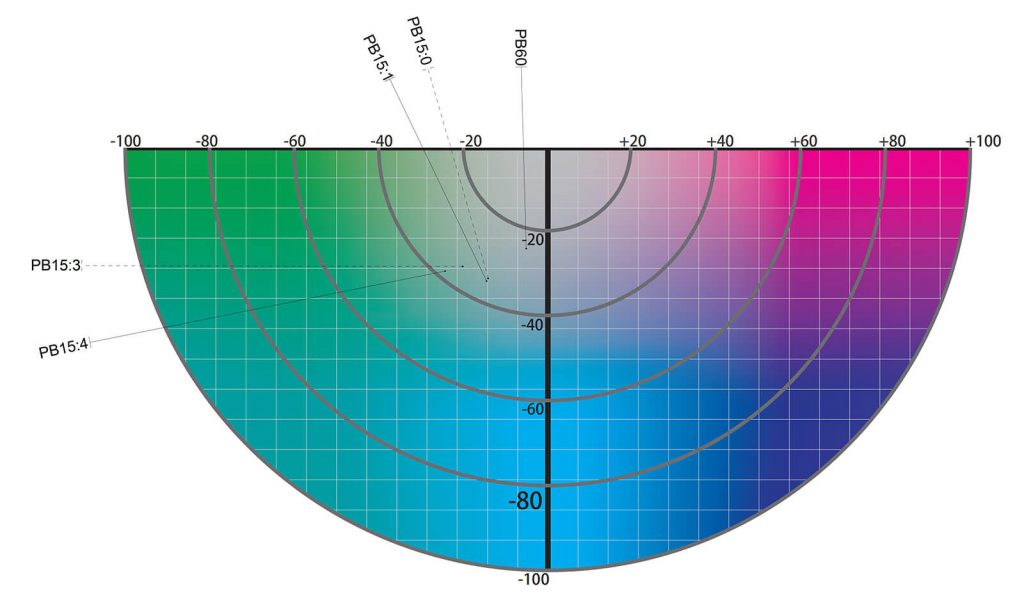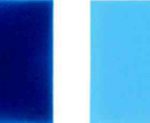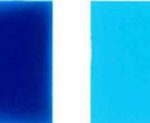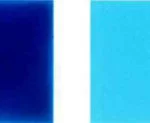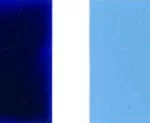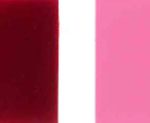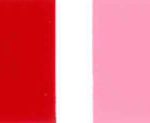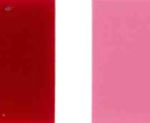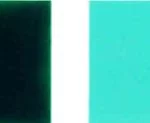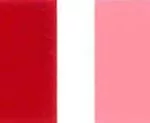Pigment blue 15:0-Corimax Blue 6850P
Technical parameters of Pigment blue 15:0
| Color Index No. | Pigment blue 15:0 |
| Product name | Corimax Blue 6850P |
| Product category | Organic Pigment |
| Light Fastness(coating) | 7 |
| Heat Resistance(coating) | 180 |
| Light Fastness(plastic) | 7-8 |
| Heat Resistance(plastic) | 220 |
Color | 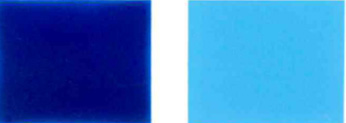 |
| Hue distribution |
Features: good dispersion, high color strength.
Application:
Recommended for architectural coatings, industrial paints, powder coatings, printing pastes, PVC, rubber, PS, PP, PE, offset inks, water-based inks.
Can be applied to PS, UV ink.
Detailed Characteristics:
Chemical Structure:
Pigment Blue 15:0 is a copper(II) complex with the phthalocyanine ligand.
It forms a planar macrocyclic structure with extensive conjugation, contributing to its deep blue color.
Physical Properties:
Molecular Weight: 576.08 g/mol
Density: Approximately 1.6 g/cm³
Melting Point: It sublimates without melting under normal atmospheric conditions.
Solubility: Insoluble in water and most organic solvents, which enhances its stability in various applications.
Synthesis:
Method: Typically synthesized by cyclotetramerization of phthalonitrile in the presence of a copper salt (e.g., copper(I) chloride) under high-temperature conditions. This reaction forms the phthalocyanine ring structure with copper at the core.
Properties:
Lightfastness: Exceptional lightfastness, making it highly resistant to fading under prolonged exposure to light.
Chemical Stability: Resistant to acids, alkalis, and organic solvents, ensuring durability in harsh environments.
Heat Stability: Can withstand high temperatures without significant degradation, suitable for various high-temperature applications.
Color Characteristics: Deep, intense blue color with high tinting strength, providing vivid coloration even at low concentrations.
Applications:
1.Paints and Coatings:
Used in automotive, industrial, and architectural coatings for its brilliant color and durability.
Also employed in artist paints, offering vibrant hues and longevity.
2.Plastics:
Utilized in the production of colored plastics, such as polyethylene, polypropylene, and polystyrene.
Its high stability ensures that the color remains consistent during plastic processing.
3.Inks:
Widely used in printing inks for packaging, textiles, and publications due to its bright color and resistance to bleeding.
4.Textiles:
Applied in textile printing and dyeing processes to achieve vibrant and long-lasting blue shades.
Used in both synthetic and natural fibers.
5.Rubber and Elastomers:
Incorporated into rubber products to impart color without affecting the material's properties.
Variants:
Pigment Blue 15:1: Beta form, known for improved dispersion and slightly greener shade.
Pigment Blue 15:2 to 15:6: Various crystalline modifications offering different hues, dispersion characteristics, and specific application advantages.
Safety and Handling:
Toxicity: Generally considered non-toxic; however, inhalation of dust should be avoided.
Safety Measures: Use personal protective equipment (PPE) such as gloves, masks, and goggles to prevent inhalation and skin contact during handling.
Environmental Impact: It is relatively inert and does not pose significant environmental hazards; however, standard environmental safety practices should be followed to prevent accidental release.
Environmental and Regulatory Aspects:
Regulations: Complies with various international safety standards for use in consumer products.
Environmental Impact: Considered environmentally benign due to its insolubility and stability, which minimizes its potential for bioaccumulation.
Pigment Blue 15:0's excellent stability, vibrant color, and wide range of applications make it a valuable pigment in many industries, serving as a base for more specialized variants and products.
